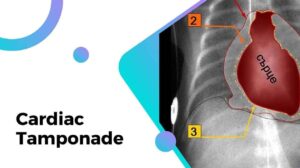A heart transplant is the ultimate undertaking if all the treatment of heart disease that the patient does not give results. This process is the last attempt at improving the patient’s health.
This procedure includes a safe step while still undergoing regular checkups. Therefore, prospective patients should be aware of everything he / she will face.
What is the heart transplants?
Heart transplant is the process of replacing the heart that has not worked optimally with a better heart from someone who just died. Although it sounds complex, heart transplant surgery needs to be done for safety and enhancement of patient’s quality of life.
Why are heart transplants needed?
A heart transplant is performed when other therapies for cardiac disorders can not cope with the condition of the heart disorders, which causes heart failure. In children, heart failure is generally caused by congenital heart disease or cardiomyopathy. Meanwhile in older patients, heart failure can be caused by several conditions such as:
- Disorders of the heart muscle or cardiomyopathy
- Coronary heart disease
- Heart valve disease
- Congenital heart disease
- Uncontrolled recurrent heart rhythm disorders with treatment
- Failure of previous cardiac transplant.
But keep in mind, heart transplant is not necessarily suitable for everyone. Individuals with the following conditions cannot undergo heart transplants:
- Old age. The elderly can affect the body’s ability to recover after undergoing a heart transplant procedure.
- It has other medical disorders that can shorten life expectancy, such as renal failure, hepatic failure, or severe lung disorders.
- Experiencing active infections.
- It has previous cancer history.
- Not change the lifestyle to be healthy to be able to keep the heart donor healthy.
Heart transplant procedure
In an outline, the following stages of conducting a heart transplant:
Finding the right donor
Not an easy thing to find the right donor. Usually the heart donor comes from a deceased person, but a good heart condition. For example due to traffic accidents, or because of brain damage where other organs are still primed. The heart transfer from the donor to the receiver should not be more than six hours.
Even though it already finds donors, many factors must be matched. Blood type, antibodies, up to heart size will be matched by the medical team, including the risks that donor recipients may encounter.
Removing the heart of donor patients
Once the right donor is acquired, it is time to remove the donor’s heart. The difficulty of carrying out this process is very dependent on the heart health history that will be removed.
The heart that has undergone surgery several times will be more difficult and takes longer to be handled compared to the heart that has not been through surgery at all.
Attaching the heart of donors
The heart implantation process to the receiver is probably the easiest procedure compared to previous processes. Even in general it only takes five stitches so that the heart of the donor can function properly on the new body. This process is essentially aimed at connecting large blood vessels in the heart to blood vessels that will drain blood throughout the body.
Heart Transplant Risks
Even though heart transplant surgery is becoming increasingly sophisticated today and the level of success is getting higher, it does not mean that the process is not risky. Here are some risks that can occur when heart transplant surgery is performed:
Side Effects of treatment
The use of immunosuppressants as drugs that suppress the immune system of a person aims to prevent the rejection of the body against the person being grafted. However, the use of the drug continuously can cause side effects, such as kidney damage.
Infection
The use of immunosuppressants will weaken the immune system, which can also cause infection difficult to heal. No wonder if the people with doing this procedure will be hospitalized because of infections that are difficult to heal in the first year after surgery.
Cancer
In the event of a potential cancer, it is caused by a decreased immune system due to immunosuppressive drugs. Non-Hodgkin lymphoma cancer is the most risky develop when you undergo treatment of post heart transplant.
Negative impact on arterial vessels
The thickened and hardened arteries are also a risk after a heart transplant. This makes blood circulation in the heart not smooth and can trigger a person to a heart attack, heart failure, or impaired heart rhythm.
The Body Rejects the New Heart
This is the biggest negative impact. Even before transplanted procedures, various methods will be performed so that this does not occur, the negative impact of rejection still persists.
Read also:
Liver Transplantation: Definition, and Procedures
Thank you very much for reading Heart Transplants: Definition, Procedures, and Risks, hopefully useful.







